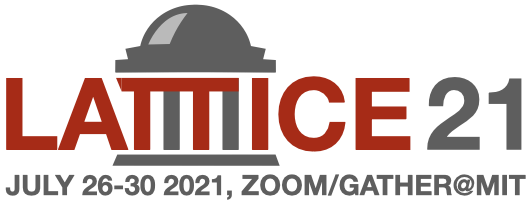Speaker
Description
Quantum simulation has the promise of enabling access to Minkowski-time dynamical observables in quantum field theories. Progress in devising and benchmarking quantum-simulation proposals, in form of analog protocols or digital algorithms, is ongoing, and increasingly complex theories are being targeted towards the goal of simulating QCD. In this talk, I will introduce a hybrid analog-digital simulation scheme for studying bosonic field theories coupled to matter, such as the Yukawa theory and the 1+1 dimensional QED, by taking advantage of both bosonic degrees of freedom (phonons) and spin degrees of freedom (internal states of the ions) in a trapped-ion quantum simulator. It will be shown that significant improvement is anticipated in the simulation resource requirement, i.e., the number of qubits and entangling operations, when compared with the fully-digital algorithms, while the flexibility of a digital scheme in engineering a complex Hamiltonian is maintained. This motivates near-term implementations that can supersede both the fully digital and fully analog implementations of the same theories.
